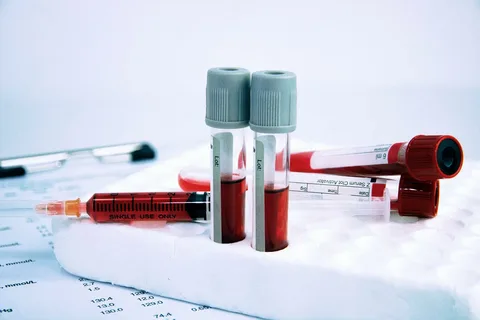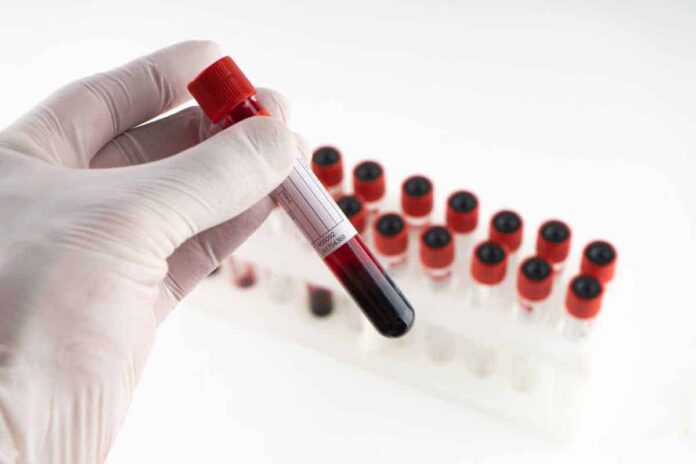Blood Analysis Melbourne is crucial in modern healthcare because it provides valuable insights into a person’s overall health and well-being. From detecting underlying medical conditions to monitoring the effectiveness of treatment, blood analysis is an essential tool for preventive medicine and chronic disease management. Moreover, it can highlight risk factors for future health problems, thus empowering individuals to make informed decisions about their health and lifestyle choices. As such, it’s becoming increasingly popular for proactive individuals to get regular blood analyses to stay on top of their health.
The Role of Blood Analysis in Health Care
Blood analysis is an indispensable aspect of health care, empowering medical professionals to swiftly and precisely obtain a comprehensive understanding of a patient’s health. This diagnostic method examines blood components such as red and white blood cells, platelets, and various proteins, providing a detailed snapshot of an individual’s health status. Through these analyses, healthcare professionals can pinpoint infections, gauge the severity of diseases, and recognize conditions like anemia and diabetes.
Beyond diagnosing illnesses, blood tests are integral to evaluating organ function, including the liver, kidneys, and thyroid, offering a broader perspective on bodily health. This breadth of information facilitates a proactive approach in healthcare, enabling early intervention and tailored treatment strategies. Furthermore, blood analysis supports the monitoring of treatment efficacy, allowing adjustments to be made as needed for optimal patient care.
With its critical role in both diagnosis and ongoing care, blood analysis remains a cornerstone of health care. It reflects a patient’s health journey and influences medical decision-making. By leveraging this tool, healthcare providers can deliver more targeted and effective care, underscoring the importance of blood analysis in the landscape of modern medicine.
The Role of Blood Analysis in Preventive Medicine
In preventive medicine, blood analysis emerges as a cornerstone for early detection and prevention of disease. It is instrumental in uncovering early warning signs that may indicate heightened risk for various conditions, such as cardiovascular diseases, diabetes, and more. Regular blood tests can unveil critical changes in the body before they manifest into more serious health issues, offering a valuable window for early intervention.
Through analyzing biomarkers such as cholesterol and glucose levels, healthcare providers can guide individuals toward lifestyle adjustments or treatments that can thwart the progression of diseases. Blood analysis also tracks markers of inflammation, which is a known precursor to many chronic conditions, enabling a proactive approach to health management.
Leveraging blood analysis for preventive health strategies is particularly effective in Melbourne, where access to cutting-edge healthcare technology and expertise is readily available. This approach aligns with a broader trend toward personalized medicine, where individual health assessments guide tailored prevention plans. Moreover, in preventive medicine, blood tests are not just about disease detection; they also play a vital role in monitoring vitamin and mineral levels, ensuring that nutritional deficiencies are addressed promptly.
Blood Analysis and Chronic Disease Management
For those navigating the challenges of chronic conditions, such as heart disease, diabetes, or rheumatoid arthritis, integrating regular blood analysis into their care regimen becomes a cornerstone of effective management. This diagnostic strategy allows a dynamic understanding of the condition’s progression and the patient’s response to treatment.
By meticulously monitoring changes in specific blood markers, healthcare practitioners in Melbourne are equipped to make timely adjustments to therapies, optimizing patient outcomes. Blood analysis facilitates the early detection of potential complications or exacerbations, enabling prompt intervention to prevent further health deterioration.
Additionally, it offers insights into the efficacy of prescribed medications, helping to tailor personalised and personalised treatment plans to the patient’s current health status. For individuals with chronic illnesses, this level of attentive care, guided by regular blood analysis, is instrumental in maintaining the best possible quality of life, managing symptoms, and reducing the risk of secondary conditions.
The Technological Advances in Blood Analysis
Technological advances in blood analysis have revolutionized healthcare by providing faster, more accurate, and more comprehensive diagnostic information. Here are some key technological advancements in blood analysis:
· Automation and Robotics:
Automated blood analyzers and robotic systems have greatly improved the efficiency and throughput of blood analysis in clinical laboratories. These systems can handle large volumes of samples, perform multiple tests simultaneously, and produce results quickly, reducing turnaround times and increasing laboratory productivity.
· Miniaturization and Point-of-Care Testing (POCT):
Miniaturized devices and POCT platforms enable rapid and on-site analysis of blood samples, eliminating the need for centralized laboratory facilities. Portable devices such as handheld analyzers, lab-on-a-chip systems, and smartphone-based diagnostics allow healthcare providers to perform blood tests at the bedside, in remote settings, or at home, providing immediate results and facilitating timely treatment decisions.
 · High-Throughput Sequencing (Next-Generation Sequencing, NGS):
· High-Throughput Sequencing (Next-Generation Sequencing, NGS):
NGS technologies have revolutionized the genetic and genomic analysis of blood samples, enabling comprehensive profiling of DNA, RNA, and other biomolecules. NGS can identify genetic mutations, detect infectious agents, characterize tumour genomes, and analyze gene expression patterns, offering valuable insights into disease diagnosis, prognosis, and treatment selection.
Understanding the Results: A Layman’s Guide
For many, deciphering blood analysis results can seem like navigating a maze of scientific terms. However, understanding these results is key to taking control of your health. Each component measured in a blood test, from hemoglobin levels to liver enzymes, tells a unique story about your bodily functions. For instance, a high white blood cell count could indicate an infection, while elevated glucose levels may point toward diabetes.
Healthcare providers in Melbourne are committed to bridging the knowledge gap for patients. During consultations, they explain the significance of various blood markers and how they reflect on one’s health. For example, they might illustrate how cholesterol levels relate to heart health or how vitamin deficiency could impact energy levels. This dialogue is vital, as it informs patients about their current health status and guides them towards making lifestyle changes or adhering to treatment plans more effectively.
The Importance of Professional Labs for Blood Analysis
Choosing a reputable laboratory for blood analysis is a fundamental step in ensuring the accuracy and integrity of test results. Professional labs are equipped with advanced technologies and staffed by experts specialising in various testing procedures. These labs uphold stringent quality control measures, crucial for providing reliable data that healthcare providers and patients depend on to make critical health decisions.
Accuracy in blood analysis is not just about detecting health conditions; it’s about the precision in monitoring health trends over time. Inaccuracies or inconsistencies in test results can lead to misdiagnosis, unnecessary worry, or oversight of serious health conditions. Professional labs mitigate these risks by adhering to rigorous standards and protocols, ensuring that each sample is processed with the utmost care and precision.
Furthermore, professional laboratories are at the forefront of adopting new testing methodologies and technologies. This commitment to innovation means that patients and healthcare providers in Melbourne benefit from the latest advancements in blood analysis, offering deeper insights into health and enabling more personalized approaches to treatment.
Live Blood Analysis Melbourne
Live Blood Analysis Melbourne offers a unique perspective on an individual’s health. It utilizes darkfield microscopy to examine a small sample of live blood. This innovative approach provides immediate insights, enabling healthcare professionals to observe the vitality and condition of blood cells as they exist in the body. Such real-time analysis can uncover subtle abnormalities or indicators of health issues, such as evidence of oxidative stress, potential nutrient deficiencies, or early signs of inflammation that traditional blood tests might overlook.
This method stands out for its ability to give a quick snapshot of one’s health, offering clues that can lead to more targeted investigations or interventions. It’s particularly valued for contributing to a more holistic understanding of a person’s health, often sparking discussions about lifestyle changes or diet adjustments that could positively impact overall well-being.
While not replacing standard blood tests, live blood analysis complements them by adding a layer of detail to the health picture being constructed by healthcare providers. This synergy between conventional and live blood analysis techniques enriches the diagnostic process, offering a broader and more nuanced understanding of an individual’s health status.
The Future of Blood Analysis in Melbourne
The future of blood analysis in Melbourne is poised for significant advancements driven by emerging technologies, innovative research, and evolving healthcare needs. Here are some potential trends and developments that could shape the future of blood analysis in Melbourne:
- Integration of Multi-Omics Data: Melbourne will likely witness the integration of multi-omics data, including genomics, transcriptomics, proteomics, metabolomics, and epigenomics, to provide a more comprehensive understanding of disease mechanisms and individual patient profiles. Integrative analysis of multi-omics data sets can uncover complex molecular networks, identify novel biomarkers, and facilitate personalized medicine approaches tailored to patient’s unique genetic makeup and health status.
- Precision Medicine and Personalized Diagnostics: Precision medicine approaches, which aim to tailor medical treatment and interventions to individual patients based on their genetic, environmental, and lifestyle factors, are expected to drive the development of personalized diagnostics in Melbourne. Blood analysis techniques incorporating genetic profiling, molecular biomarkers, and predictive analytics will enable clinicians to make more informed treatment decisions, optimize therapeutic outcomes, and improve patient care.
- Advancements in Liquid Biopsy Technologies: Liquid biopsy techniques, which analyze circulating biomarkers such as circulating tumour cells (CTCs), cell-free DNA (cfDNA), and exosomes in blood samples, are likely to play a crucial role in cancer diagnosis, monitoring, and treatment in Melbourne. Non-invasive blood tests that detect and characterize tumour-derived biomarkers will provide valuable information about cancer status, treatment response, and disease progression, enabling early detection and personalized management of cancer patients.
Conclusion
The practice of blood analysis stands as a linchpin in the pursuit of maintaining and enhancing individual health. It serves a dual purpose: offering a window into the current state of one’s health and equipping medical professionals with the necessary insights to chart a course for effective treatment and intervention. The significance of blood analysis Melbourne transcends mere diagnostics; it is a proactive measure for disease prevention, a critical tool in managing chronic illnesses, and a guide for personalized healthcare strategies.
FAQS
Q: What Is The Recommended Frequency For Undergoing Blood Analysis?
A: The need for blood analysis can vary greatly among individuals based on various factors such as age, existing health conditions, and personal risk profiles. Generally, it’s advisable to talk with your healthcare professional who can recommend a testing schedule tailored to your specific health needs and goals.
Q: Are There Any Side Effects Or Risks I Should Know When Having My Blood Drawn For Analysis?
A: While blood tests are common and generally low-risk procedures, some individuals may experience minor side effects. These can include slight discomfort or bruising at the needle insertion site. Rarely do some people feel dizzy or lightheaded during or after the procedure. These symptoms are usually short-lived and resolve on their own. It’s important to communicate with the healthcare professional conducting the test if you have any concerns or pre-existing conditions that might affect your experience.
Q: How Can I Access the Results of My Blood Tests, and Are They Available Online?
A: In today’s digital age, many healthcare providers utilize secure online patient portals that offer access to test results, including blood analyses. These platforms allow you to view your results and monitor changes over time, manage appointments, and communicate directly with your healthcare team. If you’re unsure whether your provider offers this service or how to access it, contact your healthcare provider’s office for guidance on registering for and using their specific patient portal system.
| Other Good Articles to Read |
| Blogs-Nation |
| Blogs-Peoples |
| Bryan Smith Blogs |
| intellect blogs |
| the fault in our blogs |
| blogs eu |
| oz forums |
| recruitment blogs |
| zet blogs |
| id blogs |
| Blog Studio legale |
| blogs map |
| Related Business Listings |
| Contact Directory |
| Local Business Profiles |
